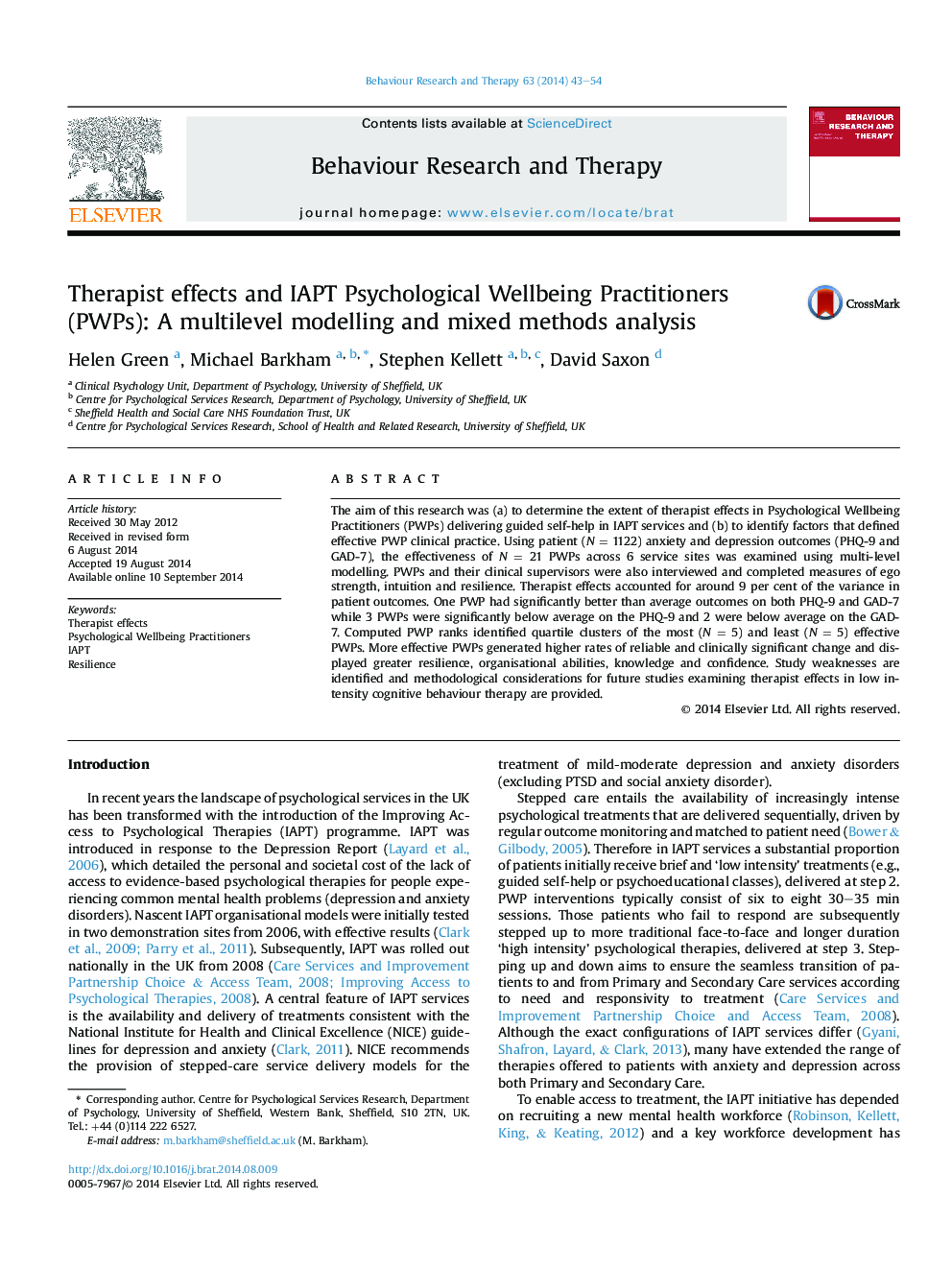| Article ID | Journal | Published Year | Pages | File Type |
|---|---|---|---|---|
| 7262534 | Behaviour Research and Therapy | 2014 | 12 Pages |
Abstract
The aim of this research was (a) to determine the extent of therapist effects in Psychological Wellbeing Practitioners (PWPs) delivering guided self-help in IAPT services and (b) to identify factors that defined effective PWP clinical practice. Using patient (NÂ =Â 1122) anxiety and depression outcomes (PHQ-9 and GAD-7), the effectiveness of NÂ =Â 21 PWPs across 6 service sites was examined using multi-level modelling. PWPs and their clinical supervisors were also interviewed and completed measures of ego strength, intuition and resilience. Therapist effects accounted for around 9 per cent of the variance in patient outcomes. One PWP had significantly better than average outcomes on both PHQ-9 and GAD-7 while 3 PWPs were significantly below average on the PHQ-9 and 2 were below average on the GAD-7. Computed PWP ranks identified quartile clusters of the most (NÂ =Â 5) and least (NÂ =Â 5) effective PWPs. More effective PWPs generated higher rates of reliable and clinically significant change and displayed greater resilience, organisational abilities, knowledge and confidence. Study weaknesses are identified and methodological considerations for future studies examining therapist effects in low intensity cognitive behaviour therapy are provided.
Keywords
Related Topics
Health Sciences
Medicine and Dentistry
Psychiatry and Mental Health
Authors
Helen Green, Michael Barkham, Stephen Kellett, David Saxon,
